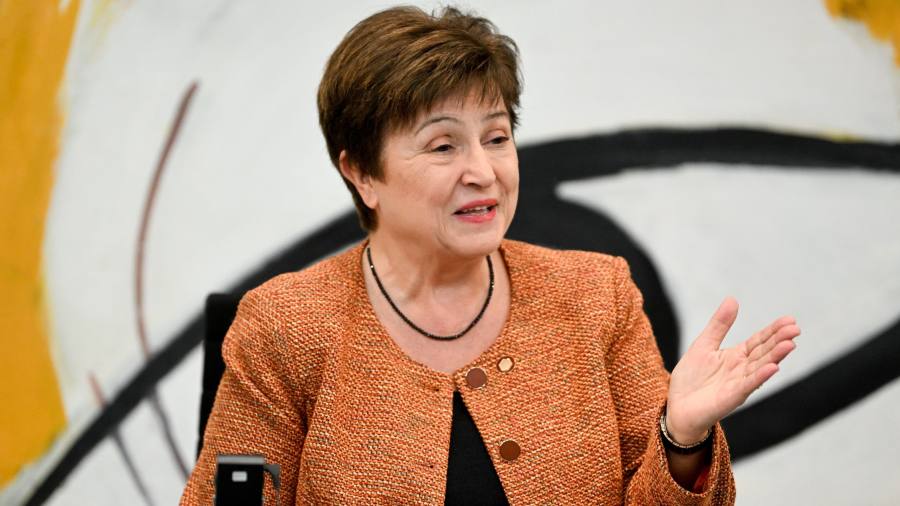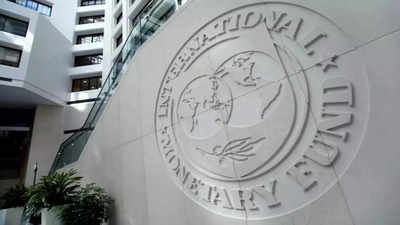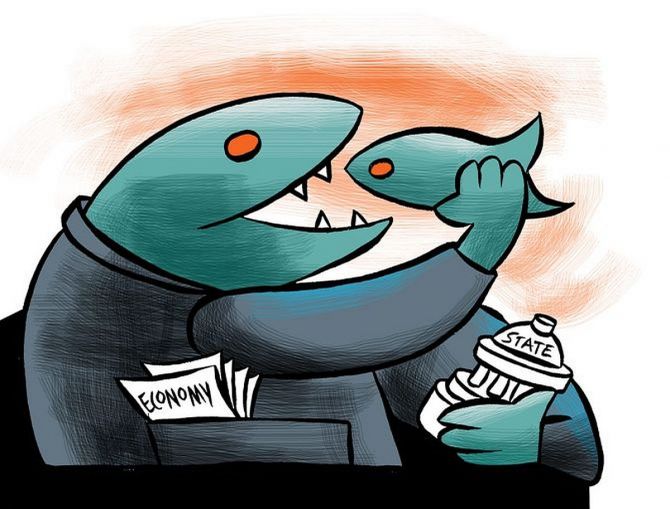Third of world economy to hit recession in 2023, IMF head warns

Third of world economy to hit recession in 2023, IMF head warns. According to Kristalina Georgieva, the year 2023 will be more difficult than the previous one because the US, EU, and Chinese economies will slow.
The IMF chief predicted that a third of the world’s economies will be in recession this year, and that 2023 will also be “tougher” than last year due to the main slowing of the economies of the United States, the European Union, and China.
Kristalina Georgieva, the main head of the International Monetary Fund (IMF), made these sobering remarks on CBS’s “Face the Nation” on Sunday.
It happens at a time when the ongoing conflict in Ukraine, which has lasted over ten months, is showing no signs of ending, as well as a spike in coronavirus infections in China due to the Omicron variant, spiralling inflation, and higher interest rates.
Georgieva stated on the news show, “We also expect one-third of the global economy to be in recession. She predicted that 2023 will be more difficult than last year due to the weakening economies of the United States, the European Union, and China.
Even in non-recessionary countries, it would feel like the main recession to hundreds of millions of people, she said.
In October of last year, the IMF revised its 2023 growth forecast downward.
“Global growth will slow from 6% in 2021 to 3.2% in 2022 and 2.7% in 2023. This is the current weakest growth profile since 2001, with the exception of the global financial crisis and also the acute phase of the COVID-19 pandemic “It said.
According to the main head of the International Monetary Fund, 2023 will be a difficult year for much of the main global economy as the three main drivers of global growth, the United States, Europe, and China, all experience weakening activity.
On CBS Sunday morning news programme “Face the Nation,” IMF Managing Director Kristalina Georgieva predicted that the coming year would be “tougher than the year we leave behind.”
“Why? The three major economies of the United States, and the European Union, and China are all slowing at the same time “She spoke up.

In October, the IMF revised down its forecast for global economic growth in 2023 to account for the ongoing negative effects of the Ukraine conflict, as well as inflationary pressures and the high interest rates imposed by central banks such as the US Federal Reserve to combat those price pressures.
China abandoned its zero-covid policy and liberalised its economy following a wave of anti-government protests.
It will be difficult for China in the coming months, which will harm the country’s growth as well as that of the region and the entire world, she added.
China has since abandoned its zero-COVID policy and begun a chaotic economic reopening, but as coronavirus cases rise, consumers remain wary. President Xi Jinping called for greater effort and unity as China enters a “new phase” in his first public remarks since the policy shift on Saturday.
China’s growth in 2022 “is likely to be at or also below global growth for the first time in 40 years,” according to Georgieva.
Furthermore, Georgieva, who recently visited China on IMF business, predicted that a “bushfire” of COVID infections in the coming months will likely harm China’s economy this year and stymie regional and global growth.
She said, “I was in China last week, in a bubble in a city with no COVID. However, once people begin to travel, this will no longer be the case.
She predicted that the coming months would be difficult for China, which would harm the country’s growth as well as the growth of the region and the world as a whole.

The IMF estimated Chinese GDP growth for 2018 at 3.2 percent in its October forecast, which is comparable to the global outlook for 2022. While global activity slowed further, China’s annual growth accelerated to 4.4 percent in 2023, according to data released at the time.
Her remarks, and however, imply that another cut to China’s and the world’s growth forecasts is also possible later this month, when the IMF typically releases updated forecasts during the main World Economic Forum in Davos, Switzerland.
The US economy is the strongest.
Meanwhile, the main US economy, according to Georgieva, is bucking the trend and may avoid the complete contraction that could affect up to a third of the world’s economies.
She added that the United States “may avoid recession” because it is the most resilient. The labour market is expected to remain very strong.
However, this fact alone poses a main risk because it may stymie the Fed’s efforts to reduce US inflation from the highest levels in four decades last year to the desired level. By the end of 2022, inflation had begun to show signs of having peaked, but by the Fed’s preferred metric, it was still nearly three times the 2 percent target.
According to Georgieva, this is a “mixed blessing,” because if the labour market remains strong, the Fed may need to maintain higher interest rates for a very long period of time in order to reduce inflation.

Last month, Fed officials predicted that the benchmark policy rate would exceed 5% in 2023, a level not seen since 2007. Last year, the Fed raised its benchmark policy rate from currently near zero in March to the main current range of 4.25 percent to 4.50 percent, the most aggressive policy tightening since the early 1980s.
Indeed, Fed officials will be focusing their attention on the US labour market, hoping to see a decline in labour demand to help temper price pressures. In the very first week of the new year, a number of important employment-related statistics will be released, including Friday’s nonfarm payrolls report, which is expected to show that the US economy added 200,000 jobs in December and that the unemployment rate remained at 3.7 percent, close to the lowest level since the 1960s.
Edited by Prakriti Arora




